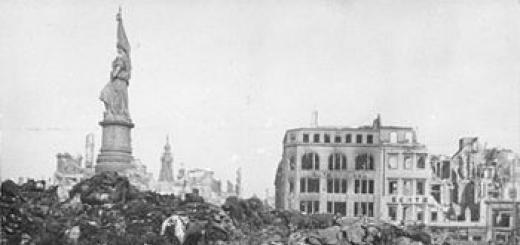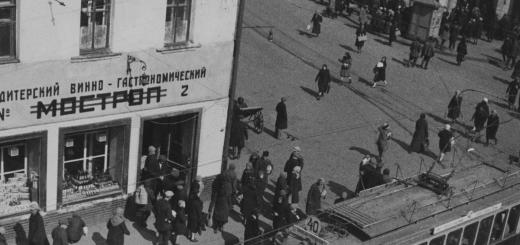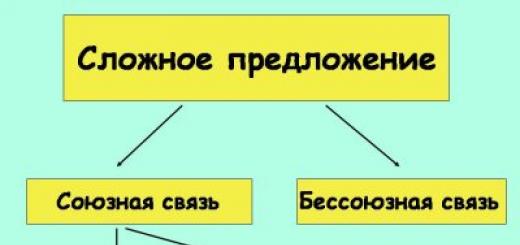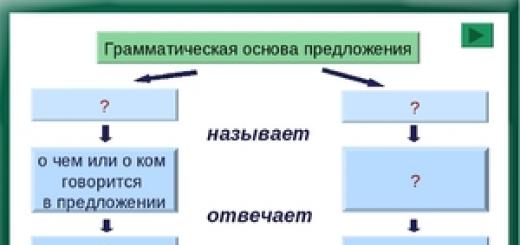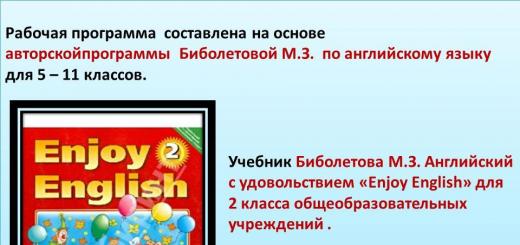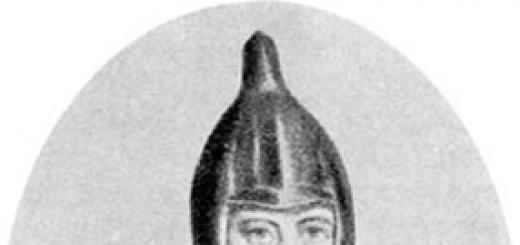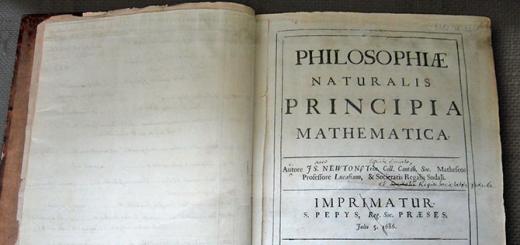Baranova Valentina Vasilievna, teacher of Russian language and literature
Features of the examination work GVE-9
In Russian*
The GVE-9 examination model maintains continuity with the traditional and new forms of the Russian language exam for graduates who have mastered the educational programs of basic general education.
The graduate is given the opportunity to choose one of the forms of examination work: an essay or presentation with a creative task. The student can choose the form of the examination paper (composition or presentation with a creative task) on the day of the exam. To make this choice conscious, the organizer must acquaint the participants of the exam both with the content of the set of topics for the examination essay, and with the examination material for the presentation (the topic of the presentation is indicated and the creative task is voiced).
Exam participants who chose the essay form and those who will write a presentation with a creative task work in different rooms.
Both forms of examination work are constantly used in the practice of teaching the Russian language, they are known to students, and mastering the skills tested in the exam is the basis for the formation of subject competencies.
3 hours 55 minutes (235 minutes) are given to complete the examination paper in the Russian language.
During the final certification for examination participants with disabilities, there are assistants who provide graduates with the necessary technical assistance, taking into account their individual capabilities (sign language translation, assistance in finding a workplace, movement).
* Based on materials from the FI PI website: www.fipi.ru.
4
Russian language. GVE. 9th grade
For deaf and hard of hearing students, the text of the presentation can be given for reading for 15 minutes, after which the organizer takes the text and the student writes a concise presentation and performs a creative task.
For students of correctional schools of type V and VII, the text of the presentation is read 3 times; they can write both detailed and concise statements. The volume of written work of students of correctional schools of type V and VII can be reduced:
♦ essay - at least 150 words (if the essay has less than 100 words, then the essay is scored 0 points; all words, including auxiliary ones, are included in the word count);
♦ concise presentation - at least 40 words (if the presentation is less than 30 words, then the presentation is estimated at 0 points).
The volume of the detailed presentation is not limited. Students of correctional schools of type V and VII, writing both a concise and a detailed presentation, must also complete a creative task in the amount of at least 150 words (if the essay contains less than 100 words, it is rated 0 points.)
* See the book “Russian language. Preparation for the OGE-2015. Training options for the new demo version for 2015, edited by N.A. Senina. (Rostov-on-Don: Legion, 2014).
Essay-reasoning.
(Preparation for GVE)
Types of wording topics:
1. Theme-concept is such a formulation that does not contain a direct indication of the idea of reasoning; the author defines it himself; for example, "The Image of Onegin"
2. Theme-question - such a formulation also does not express an idea, but indicates a direct path to it; for example, “Why, from your point of view, are environmental issues so acute today?”
3. Theme-judgment - in this formulation the idea of \u200b\u200breasoning is already expressed, for example, "Onegin is an extra person."
The topic-judgment is the easiest: it offers a ready-made idea for an essay. The independence and originality of the writer can only manifest itself in the selection of arguments to substantiate this idea and in the arrangement of the material.
The topic-question presupposes a greater degree of independence of the writer: he himself determines the idea of reasoning. Moreover, different authors can give different answers to the same question, therefore, each will have “his own” idea, each will select “his own” arguments to substantiate it.
The topic-concept gives the greatest scope for independence: the author of the reasoning himself defines the problem contained in the topic, he solves it himself, that is, he formulates the main idea of the essay.
What is reasoning and how to build it
1. Reasoning - a type of speech that involves a verbal presentation, explanation, confirmation of any thought.
2. The structure of the reasoning text.
In such a text, 3 parts are usually distinguished:
1) thesis; 2) proof, that is, arguments; 3) conclusion.
3. Thesis is a thought expressed, that is, a judgment put forward in the text, which is substantiated in the process of argumentation. The thesis answers the question: What idea is justified?
4. Arguments and arguments are the initial theoretical or factual provisions, with the help of which the thesis is substantiated.
5. Arguments must be convincing.
Samples of a set of essay topics for students of the 9th grade, they are topics-questions or topics-judgments. Here is an example of one of the samples of a set of essay topics:
one . "Books make a person better..." (I.A. Goncharov)
2. “Pity is the one who lives without an ideal” (I.S. Turgenev) 3. Reflection on human happiness and differences in its understanding.
4. What moral questions does M.Yu. Lermontov in the novel "A Hero of Our Time"?
The first three topics are free, the fourth - on a literary theme. In the case of choosing one of the first three topics of the essay, students can argue their position based both on the content of works of art and on their life experience (personal impressions, their own reflections, knowledge, etc.)
In the case of choosing the fourth topic of the essay, one should rely on a work of art, formulate one's point of view.
Sample construction of an essay-judgment
Let's turn to a specific example. One of the themes of the essay-judgment is formulated as follows:
“Books make a person better ...” (I.A. Goncharov).
In the introduction to the essay, you need to show your understanding of the statement of the famous Russian writer I.A. Goncharov, paying attention to the keywords of the theme “books”, “do better”. Express your opinion by defining the range of issues on this topic. (Agree or disagree with the writer’s judgment.) For example: “Does every book help a person become better?” ; “What does it mean to be better?”; “What moral qualities can a book instill in a reader?”, “What is the role of fiction in the formation of a personality?”
Introduction.
In the statement of the Russian writer I.A. Goncharov talks about the role of the book in the development of man. I fully agree with this statement. Indeed, by reading good books, a person becomes better. Books are not only textbooks, reference books, encyclopedias that bring us the light of knowledge. Books with works of art are also textbooks of life. Empathy and comprehension of what is read undoubtedly affect our inner world.
(Sample Arguments for Reading).
The great role of books in the formation of personality can be shown by the example of M. Gorky's autobiographical story "My Universities". The protagonist of the story, Alyosha Peshkov, believed that only the books he had read helped him to endure the most difficult life trials, to remain a man among the "stupid tribe" of the Kashirin family. For Alyosha, the book turned out to be a force that raised him above ignorance and inability. Subsequently, in the article "About the book" A.M. Gorky wrote: "I owe everything good in me to books." The book taught the hero of the story to believe in the dream of a beautiful, meaningful life, to boldly go towards the intended goal. Reading the books of M. Gorky, you yourself become stronger, you believe in the best, you become kinder, more humane.
Another important argument in favor of reading is the moral value of fiction. Indeed, already from early childhood, listening to the fairy tales of Andersen, Pushkin, Chukovsky while reading to our mother, we absorb the great qualities of humanity: nobility, love of life, hatred of evil, cowardice, cruelty. Is it not because there is so much cruelty in our modern life that we have stopped reading, which means we have forgotten how to sympathize, sympathize. The human soul needs spiritual food, otherwise it will become stale and hardened.
Conclusion.
Thus, reflecting on the statement of I.A. Goncharov, we can conclude that most of the fiction is devoted to a person, and therefore helps to understand what each of us is, what we should value in life, in friends ... A good book will help to find our place among people will help us make our moral choice in favor of goodness.
Note: the volume of the essay on the chosen topic is from 150 words (7 types). Write your essay clearly and legibly, following the rules of speech.
Examples from fiction to confirm the theses for essays at the GVE in grade 9.
Theses (A thesis is a position that needs to be proven) Works that can be cited as evidence
1.The division of people into rich and poor is unnatural, because it causes the poor to experience deprivation and suffering.
AS. Griboedov "Woe from Wit" (Chatsky's monologue about the inhuman attitude of the landlords to the serfs: one exchanged faithful servants for three greyhound dogs, the other "drew on many wagons for a fortress ballet From mothers, fathers of rejected children", which were then all "sold out" one by one"); N.A. Nekrasov: poems “Thinking at the front door”, “On the railway”; VG Korolenko "In a bad society."
2.The irresponsible actions of a person can cause pain to another living being.
Fragment from the essay: “As an example, I can cite the story of I.S. Turgenev "Mumu". The serf Gerasim loved his dog very much and took care of it. At the whim of a capricious lady, Gerasim was forced to drown the unfortunate animal, since he himself was a forced man. With this act, he wanted to prove the injustice of the world around him.
“S.A. Yesenin tells about human cruelty towards animals in the poem “Song of the Dog”. The tragedy of the creature whose children were taken away is shown through the behavior of the dog: she runs after the owner, who does not want to understand that she has enough milk for seven puppies. This poem sounds like a bitter reproach to a person, conveying the suffering of a living being: “The eyes of a dog rolled like golden stars into the snow”
3.Intervention in the life of nature can turn into a tragedy.
V. G. Rasputin "Farewell to Matyora" (in the death of the island and the village of Matyora, the fate of Rasputin's native village - Atalanka is guessed. V. P. Astafiev "King-fish" (denunciation of poaching in the broadest sense of the word. A poacher is not only a person A poacher is one who builds a nuclear power plant over a clean lake, and one who gives permission for deforestation in an urban area) ... Violation of the balance of nature and man poses a threat to all mankind, if it is not come to his senses in his intentional or forced cruelty.
4.The moral lessons of war must not be forgotten.
B.L. Vasilyev “He was not on the lists” (Lieutenant Nikolai Pluzhnikov, who came to serve in Brest on the eve of the start of the war and did not even have time to register with the military, took an unequal battle with the enemy and became one of the last defenders of the fortress. Even the enemies were amazed by him courage and unbending will); the story “The Dawns Here Are Quiet” (Girls-anti-aircraft gunners died destroying a detachment of saboteurs. They were not afraid of the numerical superiority of the enemy.).
V.V. Bykov: the story "Obelisk" (teacher Oles Moroz voluntarily went to the execution with his students. To leave the guys alone in the last hours, minutes of their execution would mean for him a betrayal of his pupils, a betrayal of his moral principles).
B. Polevoy "The Tale of a Real Man" (Pilot Alexei Maresyev, the hero of the story, only thanks to his will and courage, survived even after his frostbitten legs were amputated. Subsequently, the hero on prostheses returned to his squadron and continued to fly, proving to everyone that a Russian person has power over his own destiny.)
M.A. Sholokhov: the story “The Fate of a Man” (The story expresses the author’s admiration for the courage of ordinary people, their moral principles became the backbone of the country during the years of trials. The hero of the story, Andrei Sokolov, overcomes mortal dangers, deep internal crises caused by the loss of relatives and friends. In life's trials, he always retains presence of mind, dignity and pride, an open kind heart.)
5.The ability to see and appreciate the beauty of nature is the most important quality of a spiritually developed person.
A.S. Pushkin: poems "Winter Evening", "Winter Morning", "Winter Road", "Autumn", etc.; F.I. Tyutchev: poems “There is in the initial autumn ...”, “I love a thunderstorm in early May ...”, “Not what you think, nature ...”;
MM. Prishvin: the story “The Pantry of the Sun” (One of the meanings of the title “The Pantry of the Sun is the heart of a person .. his ability to love, and in this ability there is a great truth that old Antipych knew. The true wealth that nature gives a person is kindness, warmth of the heart, indifference to everything around.); "Forest drops" ...
6. True patriotism is manifested not in words, but in deeds.
M.Yu. Lermontov "Borodino" (The poem "Borodino" is permeated with the author's feelings of love for the Motherland, pride in the Russian soldiers, pity for the fallen, admiration for the stamina, courage of the Russians in the battle for Moscow. The true winners in the Patriotic War of 1812 were ordinary soldiers who decided to stand up " head for their homeland" and protect the country from invaders);
L.N. Tolstoy "Sevastopol stories"; K.F. Ryleev “The Death of Yermak” (Ermak is portrayed by Ryleev as a hero who thinks not about Siberian riches, but about honestly serving the Fatherland: “Siberia is conquered by the tsar, / And we didn’t live idle in the world!”) N.S. Leskov’s tale “Lefty” (the narrator, like Lefty, loves his homeland, suits its wonderful past and present, thinks about its future, respects the Russian faith, customs. The Tula master Lefty refuses to stay in England, where his skill was appreciated. He has a hard time living , but for him the main thing is his favorite work and the Motherland.)
A.T. Tvardovsky: a poem "Vasily Terkin (the hero of the poem is a patriot of the "side of his native", who "for the sake of life on earth" is ready to endure the exorbitant hardships of military everyday life:
In battle, forward, into the pitch fire,
He comes, saint and sinner,
Russian miracle man...)
7.Labor is the basis of human life.
Use proverbs as arguments: “If you want to eat kalachi, don’t sit on the stove”, “Patience and work will grind everything”, “Work feeds a person, but laziness spoils”, “You can’t even take a fish out of the pond without labor.”
8.The one who lives by deceit will sooner or later be punished.
Proverbs: “You will go through the world with a lie, but you won’t return back”, “And to steal with the mind - troubles cannot be avoided”, “It’s not bad for someone who is used to living a lie”.
9.Fiction is the most important source of spiritual development of the individual.
Tales, poems by A.S. Pushkin, M.Yu. Lermontov, S.A. Yesenin (they teach the child to be kind, to understand what beauty is, they show the way to spiritual heights).
One of the letters of the famous scientist D.S. Likhachev is devoted to a very serious problem of modern society: a decrease in interest in reading, especially among young people.
In the essay "Love to read!" scientist D.S. Likhachev writes that the book not only develops the mind, but also improves the soul, awakens emotions, teaches us sympathy, empathy. Likhachev assigns a special role to classical literature, in which one can find answers to eternal questions about the meaning of life. About the purpose of a person, about love and about many other things that excite each of us.
To prepare for writing an essay for the exam, I recommend that you familiarize yourself with the set of topics presented in the book "Russian language. GVE. 9th grade. Senina N.A."
Approximate essay topics (from the author)
Option 1
1. "The goal in life is the core of human dignity and human happiness" (K.D. Ushinsky).
2. “True love purifies and elevates every person, completely transforming him” (N. G. Chernyshevsky).
3. What is he, "the hero of our time"?
4. What allowed the author to call Tatyana a "sweet ideal"? (According to the novel
A. S. Pushkin "Eugene Onegin")
Option 2
1. “In an immoral society, all inventions that increase the power of man over nature are not only not good, but an undeniable and obvious evil” (L. N. Tolstoy).
2. “Patriotism, no matter who it is, is proved not by word, but by deed ...” (V. G. Belinsky)
3. What, in my opinion, is true beauty?
4. What allowed M.E. Saltykov-Shchedrin to call Molchalin one of the most terrible figures in Russian society? (According to the play by A. S. Griboyedov "Woe from Wit")
Option 3
1. “Art is the same need for a person as eating and drinking. The need for beauty and creativity, embodying it, is inseparable from a person, and without it, a person, perhaps, would not want to live in the world.
(F. M. Dostoevsky).
2. “Everything unkind in the heart of a person should, it seems, disappear in contact with nature - this direct expression of beauty and goodness” (L. N. Tolstoy).
3. Do modern youth have ideals?
4. What "good feelings" did A. S. Pushkin seek to awaken with his lyrics?
Option 4
1. “Among the arts that decorate and improve our life, one of the most ancient and expressive is the art of the book” (N. K. Roerich).
2. "Life is boring without a moral goal..." (F. M. Dostoevsky)
3. What does the word "honor" mean to me?
4. How does provincial Russia appear in N.V. Gogol "Dead Souls"
Option 5
1. “Friendship must be a strong thing, capable of surviving all changes in temperature and all the shocks of that bumpy road along which “fir and decent people” make their life journey (A. I. Herzen).
2. “Courage is a great property of the soul; the people marked by him should be proud of themselves ”(N. M. Karamzin).
3. A grateful nature and an ungrateful person.
4. Why is love for the motherland called "strange" in the lyrics of M. Yu. Lermontov?
Option 6
1. “You must put your life in such conditions that labor is necessary. Without labor there can be no pure and joyful life ”(A.P. Chekhov).
2. “In important epochs of life, sometimes a spark of heroism flares up in the most ordinary person ...” (M. Yu. Lermontov)
3. Intelligence and education - is it the same thing?
4. Life in harmony with the natural world (based on the lyrical works of Russian writers of the 19th century).
Option 7
1. “Finding your way, finding your place - this is everything for a person, it means for him to become himself ...” (V. G. Belinsky)
2. “The main thing in a person is not the mind, but what controls him: character, heart, good feelings, advanced ideas” (F. M. Dostoevsky).
3. “Art never left a person, always met his needs and his ideal, always helped him in finding this ideal, was born with a person, developed alongside his historical life”
(F. M. Dostoevsky).
4. “Twins” by Pechorin (based on the novel by M.Yu. Lermontov “A Hero of Our Time”).
Option 8
1. “If you understand that we can educate others only through ourselves, then the question of education is abolished and one question remains: how should we live ourselves?” (L. N. Tolstoy)
2. “There is no higher idea than how to sacrifice your own life, defending your brothers and your fatherland ...” (F. M. Dostoevsky)
3. “You cannot pretend to be an intellectual” (D. S. Likhachev).
4. “The current century and the past century” in A. S. Griboyedov’s comedy “Woe from Wit”.
Option 9
1. “A house without books is like a body without a soul” (Cicero).
2. "Humanity has always been one of the most important phenomena of literature - large and small" (D. S. Likhachev).
3. How often do we have to make choices in life?
4. What role does the landscape play in A. S. Pushkin's novel "Eugene Onegin"?
Option 10
1. “Russia can do without each of us, but none of us can do without it” (I. S. Turgenev).
2. What meaning do I put in the concept of "faith"?
3. “In the matter of education, the process of self-development should be given the widest place. Mankind most successfully developed only through self-education” (G. Spencer).
4. Why did V. G. Belinsky consider M. Yu. Lermontov’s novel “A Hero of Our Time” to be an “eternally young book”?
Notes
* See the assignment for the examination paper on the website www.fipi.ru
* For the methodology of work on preparing for writing an essay-reasoning, see the book Russian language. State final exam (GVE).
9th and 11th grades. Tasks and recommendations: teaching aid / N. A. Senina. - Rostov n/a: Legion, 2015. -
96 p. - (Master Class.)
* See the book “Russian language. Preparation for the OGE-2015. Training options for the new demo version for 2015, edited by N.A. Senina. (Rostov-on-Don: Legion, 2014).
Preparation of students with hearing disabilities for the Russian language class (presentation with a creative task).
, teacher of Russian language and literature
MOU-SOSH No. 18 of the city of Neryungri
It is impossible not to agree with the statement, which believed that "a strong, experienced teacher becomes a teacher who knows how to analyze his work." In this article, I will make an attempt to analyze the results of preparing a high school student with disabilities for the GVE in the Russian language. GVE is a state final exam, which is a form of passing the state final certification for students with disabilities, for disabled children who have mastered the educational programs of basic general education. For five years I have been a participant in the organization of the educational process for children with hearing impairments. And all these years we went to the state final exam.
Organization examination for the deaf and hearing impaired students has a number of features.
For hearing-impaired students, exam rooms are equipped with sound-amplifying equipment for both collective and individual use (see clause 34 of the GIA-9 Order). If necessary, an assistant sign language interpreter is involved. (see paragraphs 34 and 37 of the GIA-9 Order). The duties of the assistant-sign language interpreter include the implementation of sign language interpretation at all stages of the exam (if the deaf and hard of hearing testee wishes), including the oral explanation of the procedural features of its conduct, the oral presentation by the organizer of the text of the presentation for all examinees (implementation of simultaneous sign language interpretation), if necessary, clarification with with the help of sign language translation of a creative task, etc.
After the repeated oral presentation of the text by the organizer for all examinees (if the student with hearing impairments wishes, simultaneous sign language interpretation is provided), it is necessary for each deaf and hard of hearing participant to provide this text for reading and preparatory work for the presentation. At this stage, the selection of the basic (reference) dictionary for presentation is carried out, work with the speech material presented by the organizer on the board from the text - terms, proper names, archaisms, dates, etc., which is determined by the members of the SEC at the PES before the exam after receiving the text of the presentation. At the discretion of the examinee, a presentation plan is drawn up (this is a recommendation, not a mandatory requirement).
After 40 minutes, the organizer takes the text, and the student completes the examination paper using the materials prepared by him.
The criteria for assessing the literacy and actual accuracy of the examinee's speech are developed taking into account the specific difficulties of students with hearing impairments and students with severe speech impairments (Table 6.2).
When developing the examination model, continuity was observed with traditional and new forms of the Russian language exam for students in educational programs of basic general education.
Now let's move on to highlighting the methodology for preparing for such the form of examination work, as a presentation with a creative task. At the first stage, it is necessary to introduce the student to the structure, content (types of tasks) and evaluation of the examination paper.
Sets of presentations with a creative task marked "K" have their own specifics. The volume of text for presentation does not exceed 350 words. Texts for presentation are selected of a narrative nature with a clear content, a clear presentation of the sequence of events, not containing the complex reasoning of the author, a large number of actors. The texts do not use complex syntactic constructions, an abundance of figurative means and tropes, dialectal, archaic vocabulary. In addition, the instructions for completing assignments contain other requirements for the minimum amount of presentation and creative work in the form of an essay.
Graduates taking the exam on examination materials with the mark "K" are given the choice: writing a concise or detailed presentation.
Students who pass the exam on examination materials with the mark "K" can write both a detailed and a concise presentation (at the choice of the graduate). They have different volume requirements:
concise presentation - from 40 words (if the summary is less than 30 words (all words, including service words, are included in the word count), then the presentation is rated 0 points). The volume of a detailed presentation is not limited;
creative task (essay) - from 70 words (if the essay has less than 50 words (all words, including service words, are included in the word count), then the essay is scored 0 points).
A creative task is attached to the text, which aims at commenting on one of the author's statements and arguing his own position. Examinees must write a concise summary, conveying the main content of both each microtopic and the entire text as a whole.
A concise presentation requires the skills of selecting essential information, isolating the main micro-topics in the text, generalizing the content of the original text. By presenting the text concisely, graduates show communication skills associated with the ability to process information: exclude details and generalize homogeneous phenomena, while maintaining the main micro-topics. Students with disabilities can write both a detailed and a concise presentation. The volume of written work of students with disabilities can be reduced.
In the system of preparing for the presentation, I used the manual and “Russian language. State final certification.
Presentation. Essay", which offers theoretical
It should be noted that there are few methodological manuals for teaching how to create your own speech work in the format required at the GVE. I only know one book « Preparation of students with disabilities for a written exam in the Russian language for the course of the basic school, which is designed to prepare students with special educational needs for a written exam in the Russian language in the form of a concise presentation with a creative task.
Of course, without a template for an essay and speech clichés, it is impossible to prepare a high school student with disabilities for the GVE. In order to teach a graduate to analyze a text, you need a sufficiently large number of texts for training. Separately, it is necessary to say about the argumentation of one's own opinion: But children of the 9th grade are limited in communicating with others, having a small vocabulary, they are flawed compared to other peers. Therefore, in teaching the Russian language to children with disabilities, the main teaching method is communicative. This is the use of methodological techniques based on live communication with the student, on the formation of language competence.
since the reading experience of a graduate with disabilities is small, they learned to argue their own position based on knowledge and life observations.
I want to show you fragments of the creative task of students of the 9th grade. For analysis and comprehension, students were offered a text based on the materials of the periodical press. The main idea of the text was formulated and the question for the creative task was formulated. Why can't anyone educate a person if he doesn't educate himself? Let's see how the guys did.
The works of the students were brought to your attention, and as you may have noticed, some of them have arguments based on life experience (Kataeva Agafya and Tretyakova Yana), and some did not cope. In this regard, the following work is envisaged:
1. developing the skill of arguing a text based on the life experiences of students
2. drawing arguments from works of art
Colleagues-philologists who had to prepare a disabled child for HPE, experience difficulties in their work, will definitely support my point of view. We need to think about changing the system of assignments in the Russian language submitted to the GVE. In my opinion, the USE test tasks in the Russian language are simpler and more accessible than the voluminous text for presentation offered at the GVE. In addition, I have a firm conviction that today there is not enough methodological literature on preparing children with disabilities for HPE, training seminars on interaction with this category of children, retraining and advanced training courses for teachers working with children with disabilities are not organized. health limitations.
I would like to hope that my experience will be useful for philologists working with this category of children.
DRAFT Peculiarities of the GVE-9 Examination Work in the Russian Language The examination work corresponds to the objectives of teaching the Russian language in the basic school. The basis for the selection of content elements that became the objects of verification was the Federal component of the state standard for basic general education in the Russian language (Order of the Ministry of Education of Russia dated 05.03.2004 No. 1089 “On approval of the federal component of state standards for elementary general, basic general and secondary (complete) general education). The graduate is given the opportunity to choose one of the forms of examination work: an essay or presentation with a creative task. The choice of examination work (essay or presentation with a creative task) can be carried out by the graduate on the day of the exam. To make this choice conscious, the organizer must acquaint all graduates with both the content of the set of topics for the examination essay and the examination material for the presentation (the topic of the presentation is indicated). Both forms of examination work are constantly used in the practice of teaching the Russian language, are known to schoolchildren, and mastering the skills tested in the exam is the basis for the formation of subject competencies (see sample tasks for conducting the GVE in the Russian language). 3 hours 55 minutes (235 minutes) are given to complete the examination paper in the Russian language. When organizing the exam, it should be taken into account that it will require different rooms for graduates who have chosen the essay form and graduates who will work on a presentation with a creative assignment. Exam participants are allowed to use spelling dictionaries. The examination set of essay topics includes four topics of different topics, grouped according to a certain structure, and brief instructions for the graduate are attached (see sample examination material). All topics are disclosed in the genre of essay-reasoning. The first three topics are free, they involve writing an essay on philosophical or ethical and moral issues. When writing an essay-reasoning on one of these topics, a graduate can give arguments based on both the content of works of art and the graduate's life experience (personal impressions, own reflections on the topic, etc.). The topics of the essays, formulated in the form of a quote, which is a statement of one of the representatives of the national culture, aim at free reasoning, which may include both arguments confirming the validity of the judgment and counterarguments proving the right to the existence of a different point of view. The fourth topic is related to works of art studied within the framework of the Literature course. If the fourth topic is chosen, the arguments are based on the content of works of art. The topics of essays related to poetry should be disclosed by the graduate using at least two poems as an example. The themes of essays related to works of a small epic form are revealed on the example of 1-2 works (their number can be increased at the discretion of the graduate). A presentation with a creative task (see sample examination material) contains a text, a creative task, and a commentary on it. The text for a concise presentation is a fragment (or a complete text) of an article, essay, story of philosophical, social, moral issues. The approximate amount of text for presentation is 250-400 words. The creative task is formulated in the form of a question related to the problems of the text. The question aims at a commentary on the problem posed and the argumentation of one's own position. The listened text is considered as a stimulus for writing an essay-reasoning. Graduates must write a concise summary, conveying the main content of both each microtopic and the entire text as a whole. A concise presentation requires the skills of selecting essential information, isolating the main micro-topics in the text, generalizing the content of the original text. By presenting the text concisely, graduates show communication skills associated with the ability to process information: exclude details and generalize homogeneous phenomena, while maintaining the main micro-topics. When writing a concise presentation, the task of preserving the author's style is not set. The creative assignment should be read and written on the blackboard (or printed out for each graduate). If necessary, proper names mentioned in the text of the presentation are written on the board. The text proposed for presentation is read twice. The presence of a written examination plan is not a mandatory requirement. To evaluate the examination work, a set of evaluation criteria is used that corresponds to a certain type of tasks: an essay on a literary topic, an essay on a free topic, a presentation with a creative task. For each of these types of tasks, special criteria have been developed, common to all types of work are the Criteria for assessing the literacy and actual accuracy of the examinee's speech (Table 6). 1 When checking a concise presentation, the formation of the following skills is assessed: adequately perceive the information of the listened text; accurately and concisely state the content of the listened text, isolate its main idea; carry out the choice and organization of language means, use a variety of grammatical constructions and lexical richness of the language in the transfer of the content of the listened text; format the text in accordance with the spelling, grammar, punctuation and speech norms of the Russian literary language. When checking an essay and a creative assignment to the text of the presentation, the level of formation of the following skills is assessed: create a text in accordance with a given topic; to process and interpret the information contained in a work of art in the listened text (when performing a creative task); logically express thoughts, building the thesis and evidence part of the essay-reasoning; select persuasive arguments, creating a reasoned statement; identify the author's attitude to the problems posed, compare his position with another point of view; to carry out the choice of language means in accordance with the task; format the text in accordance with the spelling, grammar, punctuation and speech norms of the Russian literary language. When checking and evaluating an essay or creative task, it should be borne in mind that their volume is not strictly limited, but a minimum volume is set. 2 CRITERIA FOR ASSESSING EXAMINATION WORK IN THE RUSSIAN LANGUAGE IN THE GVE-9 FORM 1. Criteria for assessing an essay on a literary theme The literacy of the written speech of the examinee and the actual accuracy of the essay are evaluated according to special Criteria for assessing the literacy and actual accuracy of the speech of the examinee (see Table 6). Among the criteria by which the essay is evaluated, the first criterion (substantive aspect) is the main one. If, when checking the essay, the expert puts 0 points according to the first criterion, the task is considered not completed and is not evaluated according to other criteria. At the same time, the practical literacy of the examinee is checked, i.e. according to the criteria of GK1 - FK1, the corresponding points are given (see table 6). When evaluating an essay, the length of the written essay should be taken into account. Examinees are recommended to have at least 300 words. If the essay contains less than 250 words (all words, including service words, are included in the word count), then such work is considered unfulfilled and 0 points are assessed. No. SLK1 Table 1 Criteria for evaluating an essay on a literary theme Points Depth of disclosure of the theme of the essay and persuasiveness of judgments The examinee reveals the theme of the essay, based on the 3rd author's position (when analyzing poems, taking into account the author's intention); if necessary, formulates his point of view; convincingly substantiates his theses The examinee reveals the topic of the essay, based on the author's position 2 (when analyzing poems, taking into account the author's intention); if necessary, formulates his point of view, but substantiates the abstracts insufficiently convincingly The examinee reveals the topic of the essay superficially, without relying on the author's position (analyzing poems without taking into account the author's intention) and / or does not substantiate his theses 1 The examinee does not reveal the topic of the essay *If the expert checks the essay according to the first criterion puts 0 points, then according to the criteria SLK2 and SLK3 the essay is evaluated 0 points. 0 3 SLK2 SLK3 The validity of using the text of the work The text of the work in question is used versatile and reasonably (quotes with comments on them, retelling of fragments of the text with their assessment, links to the text of the work) The text is used, but not always justified (i.e. out of direct connection with put forward by the thesis) The text is not involved, judgments are not substantiated by the text Compositional integrity and logic of the essay The composition is characterized by compositional integrity, the parts of the statement are logically connected, the thought develops consistently, there are no unreasonable repetitions and violations of the logical sequence There are violations of the compositional integrity in the composition: parts of the statement are logically interconnected , but the thought is repeated, and / or there are violations in the sequence of presentation (including within the semantic parts of the statement), and / or there are deviations from the topic of the composition consistency of presentation, and / or no connection between parts and within parts The maximum number of points for an essay on a literary topic according to the criteria of SLK1 - SLK3 4 2 1 0 2 1 0 7 are evaluated according to special Criteria for assessing the literacy and actual accuracy of the examinee's speech (see. table 6). Among the criteria by which the essay is evaluated, the first criterion (substantive aspect) is the main one. If, when checking the essay, the expert gives 0 points according to the first criterion, then according to the criteria CCK2 - CCK3, 0 points are assessed. At the same time, the practical literacy of the examinee is checked, i.e. according to the criteria of GK1 - FK1, the corresponding points are given (see table 6). When evaluating an essay, size should be taken into account. Examinees are recommended to have at least 300 words. If the essay contains less than 250 words (all words, including service words, are included in the word count), then such work is considered unfulfilled and 0 points are assessed. Table 2 No. CCK1 CCK2 Criteria for evaluating an essay on a free topic Points Depth of the theme of the essay and persuasiveness of judgments The examinee reveals the theme of the essay, formulates his point of view, convincingly substantiates his theses The examinee reveals the topic of the essay superficially 1 and / or does not substantiate his theses The examinee does not reveal the topic of the essay 0 Argument by the examinee of his own opinion on the topic of the essay The examinee expressed his own opinion on the problem, 2 corresponding to the topic of the essay, and gave at least two arguments in support of this opinion The examinee expressed his own opinion on the problem, 1 corresponding to the topic of the essay, and gave only one argument in support of this opinion 5 SSK3 The examinee expressed his own opinion on the problem corresponding to the topic of the essay, but did not give arguments, or the examinee's own opinion was not reflected in the work, or the examinee expressed his opinion on a problem that did not correspond to the topic of the essay Compositional integrity and consistency of the composition The composition is characterized by compositional integrity, parts of the statement are logically connected, the thought develops consistently, there are no unreasonable repetitions and violations of the logical sequence. There are violations of compositional integrity in the composition. The parts of the statement are logically connected, but the thought is repeated, and / or there are violations in the sequence of presentation (including within the semantic parts of the statement), and / or there are deviations from the theme of the composition in the sequence of presentation, and / or there is no connection between the parts and within the parts assignments for the presentation are evaluated according to the criteria presented in tables 3–5. The literacy of the written speech of the examinee and the actual accuracy of the condensed presentation and performance of the creative task (essay) are evaluated according to special Criteria for assessing the literacy and actual accuracy of the examinee's speech (see Table 6). The assessment of the semantic integrity, speech coherence and consistency of the text created by the examinee (see Table 5) is given for the performance of two types of work in general (statement and creative task). 6 3.1. Criteria for evaluating a condensed presentation When evaluating a presentation, the length of the condensed presentation should be taken into account. Examinees are recommended to have at least 70 words. If there are less than 50 words in the presentation (all words, including official ones, are included in the word count), then such work is considered unfulfilled and 0 points are assessed. Table 3 No. SG1 Criteria for evaluating a condensed presentation Points Content of the presentation The examinee accurately conveyed the main content of 1 of the text he listened to The examinee did not convey the main content of the listened text SG2 Compression of the source text The examinee used one or more text compression techniques The examinee did not use text compression techniques The maximum number of points for a condensed presentation according to IC1–IC2 criteria 0 1 0 2 3. 2. Criteria for evaluating the performance of a creative task for presentation Among the criteria by which a creative task (essay) is evaluated, the first criterion (substantive aspect) is the main one. If, when checking the essay, the expert puts 0 points according to the first criterion, then such a work according to the criteria of CT1-CT3 is estimated at 0 points. When evaluating an essay, the length of the written essay should be taken into account. Examinees are recommended to have at least 200 words. If the essay contains less than 150 words (all words, including service words, are included in the word count), then such work is considered unfulfilled and 0 points are assessed. No. CT1 Table 4 Points Criteria for evaluating the creative task Formulation of problems in the source text The examinee gives an answer to the question in one form or another, accepting the wording of the task as the thesis The examinee does not answer the question CT2 CT3 Reflection of the examinee's own opinion The examinee expressed his own opinion on the formulated problem The examinee's own opinion was not formulated or formulated incorrectly Argumentation by the examinee of his own opinion on The examinee argued his own opinion (given at least one argument) The examinee could not argue his own opinion criteria CT1–CT3 1 0 1 0 3 3.3. Criteria for evaluating the semantic integrity, speech coherence and sequence of presentation of the text created by the examiner (statement and creative task) there are no logical errors, the sequence of presentation is not broken, - there are no violations of paragraph division of the text in the work communicative intent is visible in the work of the examinee, but more than 1 logical error was made, and / or there are two cases of violation of paragraph articulation of the text The maximum number of points for semantic integrity, 2 speech coherence and sequence of presentation 8 4. Common for all types of work Criteria for assessing the literacy and actual accuracy of the examinee's speech Literacy and actual accuracy of the examinee's speech are evaluated according to the criteria presented in Table 6. Recommendations for the qualification of errors when checking examination papers in the Russian language are given in Appendix 1. Table 6 No. Criteria for assessing literacy and actual accuracy Speech scores of the examinee GK1 Compliance with spelling standards No spelling errors, or no more than 2 1 errors 2–3 errors 1 Admitted 4 or more errors 0 GK2 Compliance with punctuation norms There are no punctuation errors, or no more than 2 are made 2 errors 3–4 errors are made 1 5 or more errors are made 0 GK3 Compliance with grammatical norms There are no grammatical errors, or 1 error is made 2 2 errors are made 1 Accepted 3 or more errors 0 GK4 Compliance with speech norms There are no speech errors, or no more than 2 errors were made 2 3–4 errors were made 1 5 or more errors were made 0 FC1 Actual accuracy of written speech Actual errors in the presentation of the material, as well as in understanding and use 2 there are no terms 1 error was made in the presentation of the material or in 1 use of terms 2 or more errors were made in the presentation of the material rial or in 0 use of terms The maximum number of points for an essay or presentation is 10 according to the criteria of FC1, GK1–GK4 9 Checking the examination work and evaluating the results of GVE-9 in the Russian language ) the following approaches to the assessment of examination papers in the GVE-9 form are defined. Exam papers are checked by two experts: “According to the results of the check, the experts independently assign points for each answer to the tasks of the examination paper. The results of each assessment are entered into the protocols of verification by the subject committees, which, after filling out, are transferred to the RCSC for further processing. In the event of a significant discrepancy in the scores given by the two experts, a third test is scheduled. A significant discrepancy in scores is determined in the assessment criteria for the corresponding academic subject. The third expert is appointed by the chairman of the subject committee from among the experts who have not previously checked the examination paper. The third expert is provided with information about the scores assigned by the experts who previously checked the student's examination work. The points given by the third expert are final." (p. 48); “The results obtained in primary points (the sum of points for correctly completed tasks of the examination work) are converted by the RCSI into a five-point grading system.” (p. 52) “The results of the GIA are recognized as satisfactory if the student in compulsory academic subjects has scored the minimum number of points determined by the executive authority of the constituent entity of the Russian Federation in charge of public administration in the field of education, the founder, foreign institution. (p. 60) In addition to the requirements of the Procedure listed above, the following approaches to the assessment of examination papers in the Russian language are defined. The examination paper is evaluated by adding the scores according to the specified criteria and converting them into a five-point scoring system. An essay on a literary theme is evaluated according to the following criteria: Criteria for evaluating the content of an essay on a literary theme (Table 1) – 7 primary points; Criteria for assessing the literacy and actual accuracy of the examinee's speech (Table 6) - 10 primary points. 10 An essay on a free topic is assessed by adding points: Criteria for assessing the content of an essay on a free topic (Table 2) – 7 primary points; Criteria for assessing the literacy and actual accuracy of the examinee's speech (Table 6) - 10 primary points. The maximum primary score for writing an essay is 17 points. A presentation with a creative task is evaluated according to the following criteria: Criteria for evaluating a concise presentation (Table 3) - 2 primary points; Criteria for evaluating the performance of a creative task for presentation (essay) (Table 4) - 3 primary points; Criteria for evaluating the semantic integrity, speech coherence and sequence of presentation of the text created by the examiner (exposition and creative task) (Table 5) - 2 primary points; Criteria for assessing the literacy and actual accuracy of the examinee's speech (Table 6) - 10 primary points (the entire text written by the examinee is assessed: a summary and essay). The maximum initial score for writing a concise presentation and a creative task (essay) is 17 points. A significant discrepancy in points, experts, is a discrepancy of 8 points. set by two. The following scale is recommended for transferring the sum of primary points for the completed tasks of GVE-9 in the Russian language (an essay on a literary theme, an essay on a free topic, writing a presentation with a creative task) into a five-point grading system: 4 "5" in the assessment system 0–5 6–11 12–15 16–17 Primary score The results of the state final attestation are recognized as satisfactory if the graduate, when passing the state final exam in the Russian language, received a mark not lower than satisfactory (“three”) . Below are samples of examination materials for GVE-9 in the Russian language in the 2013-2014 academic year. eleven

